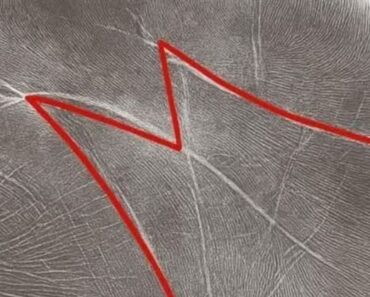
Every morning, I’d step outside, hopeful — only to return steaming with frustration. The carrots nibbled to stubs. Lettuce ripped from the roots. A bean vine snapped clean in half, like some invisible saboteur was at work. I’d even set up a motion-activated light and a trail cam, convinced that catching the culprit red-pawed would finally put an end to the garden raids. Raccoons? Foxes? Maybe a hungry deer? I was prepared for any wild visitor. But what I wasn’t ready for—what I never could have imagined—was the truth that would shatter my heart and rebuild it all in the same breath.
It all began when Runa didn’t come to breakfast.
Runa’s no ordinary dog. Part shepherd, yes, but it’s her spirit—fierce, independent, a little wild—that defines her. When she was a pup, she’d tuck herself under the porch during storms, stubborn as ever, refusing to come inside no matter how hard the rain pounded. After losing her last litter, everything changed. The playful spark faded; she stopped chasing shadows and fetching sticks. Most days, she just slept, often retreating to the barn at night, silent and still, as if the world outside had nothing left to offer.
That morning, I thought she was there again—ignoring me as I called her from the porch. But something felt different. A pull in my gut. Or maybe guilt—I hadn’t been the kindest lately, distracted by fences to fix and phantom predators to chase. So I grabbed a biscuit, slipped on my boots, and went to the barn.
Inside, the dust danced in the soft morning light filtering through the cracks. The familiar smells wrapped around me—hay, oil, old tools—comforting, yet something else lingered. A faint, almost hidden sound.
A whimper.
Quiet and aching.
I moved slowly, heart pounding, circling the hay bales and peering behind an untouched crate pile from spring.
There she was.
Runa, curled tight like a coil, protectively shielding something small.
I whispered her name, half-afraid she’d snap or flee. But her amber eyes met mine—wide, filled with fear and something deeper, maybe grief.
Then I saw them.
Two tiny bundles nestled between her paws. At first, I thought puppies—maybe a stray litter she’d found. But no. They were baby rabbits. Fragile, eyes sealed shut, barely breathing.
And Runa was nursing them.
I froze, stunned. My fierce dog, once barking at squirrels like they owed her money, was gently licking the soft fur of these helpless creatures as if they were her own.
It made no sense.
Until I spotted the flash of red behind the crates.
I thought it was a fox at first. With my heart in my throat, I pulled the crate aside.
What I found was far worse.
An adult rabbit, lifeless.
No blood, just stillness that said everything. Her fur matted, a leg twisted painfully — she’d dragged herself there, maybe trying to hide, trying to reach her babies.
But she didn’t make it.
I sat back, stunned. The mother rabbit had been sneaking into my garden for weeks—maybe longer—feeding herself and her kits. And now she was gone, leaving behind two tiny survivors.
And somehow, Runa had found them.
No, she had rescued them.
Those garden nibbles I blamed on a fox? They were a desperate mother’s fight to feed her family. And all this time, I’d been setting traps.
I looked at Runa again. She rested her head gently between her paws, shielding the babies. She didn’t trust me yet—not fully. But she hadn’t run.
That meant everything.
I stayed with her until the sun began its slow descent behind the barn. Then, cautiously, I broke the biscuit in half and offered it. She took it, tentative but willing. When I reached out to touch the babies, she tensed — then relaxed, letting me.
They were warm. Breathing. Alive.
Over the following days, I made a cozy nest in the barn corner, brought food and water, and researched how to care for wild rabbits. Runa stayed close, almost never leaving their side. Every check showed them stronger—eyes opening, tentative hops, curiosity blossoming. And Runa followed like a proud mother watching her toddlers take their first steps.
Neighbors thought I was crazy. “A dog raising rabbits? That’s not normal,” one said.
But it was normal — just not the kind we expect. It was grief turning into purpose. Instinct wrapped in second chances.
When the rabbits were ready, they stopped coming back to the barn. One morning, the box was empty. Runa sat in the grass all day, ears alert, nose twitching, watching the trees.
She didn’t whine. Didn’t follow.
She’d done her part.
Months passed. The garden healed, though I still lose a carrot or two now and then. Runa sleeps inside now, curled at the foot of my bed. She’s still fiercely independent, still a little wild — but softer, more patient.
Like she knows something we often forget: love doesn’t always come in the package we expect, and family isn’t just those we’re born to — it’s who we choose to protect, no matter what.
Now, whenever I see a flash of red near the woods or hear rustling among the beans, I don’t curse. I don’t set traps.
I just watch. And wonder.
Because sometimes, the trouble you think you’re fighting? Turns out to be a miracle in disguise.
If this story touched your heart even half as much as it touched mine, please share it. You never know who might need a little reminder that hope can grow in the most unexpected places. ❤️





